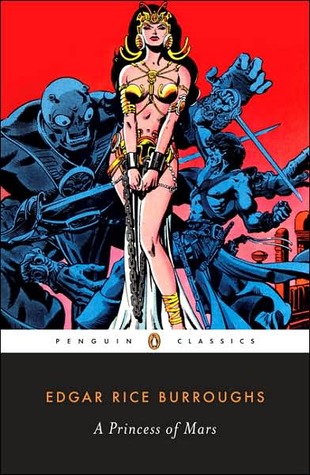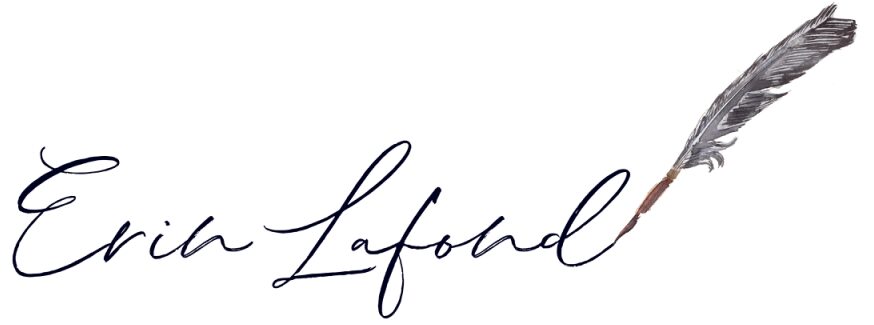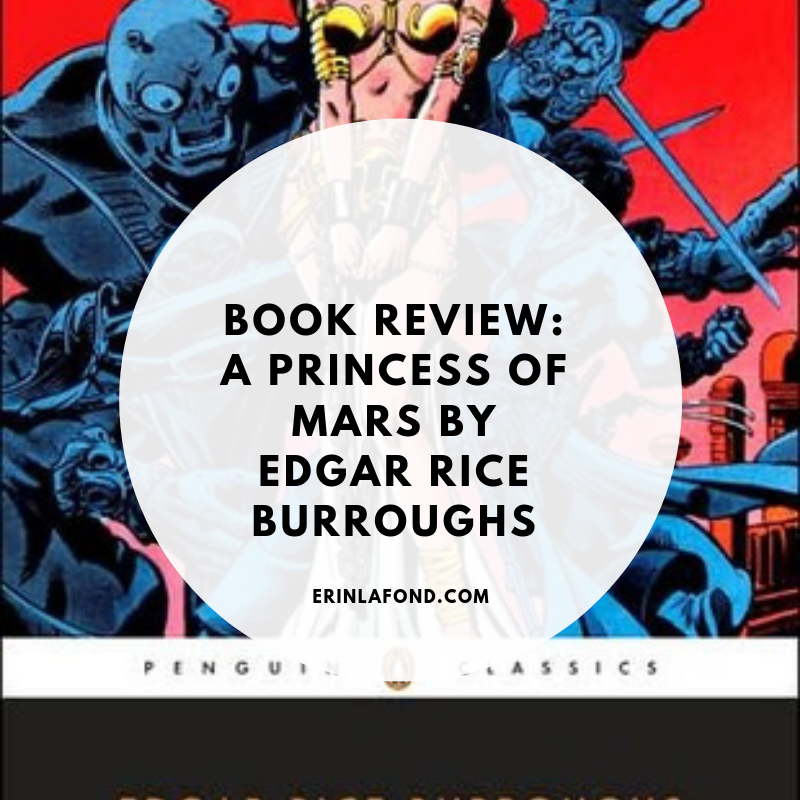Book Review: A Princess of Mars
Last updated on November 23rd, 2022 at 07:28 am
A Princess of Mars was written by Edgar Rice Burroughs, who also wrote Tarzan, and was originally published serially in 1912. It is the first book in his Barsoom trilogy. My professor once described it as “pretending to be [science fiction] but really a fantasy,” and it is easy to see what he means. There are more references to science than actual science. It’s mostly just unexplained nonsense.
The story revolves around John Carter who describes himself as a gentleman of Virginia. He somehow ends up on Mars where he is captured and held prisoner by vicious Martians. These Martians are fundamentally warriors who have Roman-style games and only respect murder. He’s so amazing and skilled at everything that he almost immediately becomes a chieftain himself. Luckily, he meets a fellow prisoner/humanoid who just happens to be a super beautiful princess of a more sophisticated society. Of course. The book is fast-paced, and there’s constantly a problem to be solved. Even at the end, there’s a problem to be solved, but you’re not sure if it gets resolved because Burroughs leaves you hanging. This method isn’t surprising considering the novel was originally published serially and needed to keep its readers interested.
These Martians are fundamentally warriors who have Roman-style games and only respect murder. He’s so amazing and skilled at everything that he almost immediately becomes a chieftain himself. Luckily, he meets a fellow prisoner/humanoid who just happens to be a super beautiful princess of a more sophisticated society. Of course. The book is fast-paced, and there’s constantly a problem to be solved. Even at the end, there’s a problem to be solved, but you’re not sure if it gets resolved because Burroughs leaves you hanging. This method isn’t surprising considering the novel was originally published serially and needed to keep its readers interested.
The book is a planetary romance, meaning that it takes place on a planet’s surface, (Mars, in this case) and this is integral to the story. It depends on its location for its characters and plot. Carter is a foreigner trying to understand the ways of the people around him. Ultimately, it’s also a love story between Carter and a princess of Mars.
I really struggled to like the protagonist. He’s a Mary Sue, meaning a character (usually a woman) that is kind of perfect and doesn’t have any character flaws. Being on Mars gives him enhanced strength, agility, and the ability to jump really, really high. This gets him out of most of his problems. He is given promotions and honors during every step of his journey, and, in the end, he does get to marry the princess. Since Burroughs decided to write his novel in first person, it becomes a bit annoying to constantly hear Carter brag about how awesome he is. For instance, later in the novel he says, “During the day I was pitted against first men and then beasts, but as I was armed with a long-sword and always outclassed my adversary in agility and generally in strength as well, it proved but child’s play to me” (136).
Then there’s the princess, Dejah Thoris, who is also captured by the Green Martians and must escape. There quite frankly isn’t too much to say about her. She’s not the worst female character ever created, but she’s definitely not good. She spends a good chunk of her time being rescued. There’s one moment where she decides to die with John Carter, but she’s immediately overruled and sent off. She is strong and proud, but a character can only be so flawed when they need to be the perfect motivation for Carter to be heroic. She’s the main catalyst of the novel and, therefore, has to be entirely lovable.
The writing is fairly straightforward, formal, and stiff. The story comes from the pulp magazine era, and it has that kind of feel. It has tons of violence, yet almost no detail in terms of events. There’s no description of swords clashing or a blow-by-blow account of the fights. It’s simply “I fought him, and I won.”
One thing I noticed Burroughs does is almost never leave his reader confused or in suspense. Huge events take place in two pages. Beyond that, he’s constantly dropping in information that the protagonist discovers after. It’s always “As I learned later…” so the reader doesn’t spend any time wondering who the Martians are and what they want. Additionally, part of the reason he has to constantly introduce new problems is that they are usually immediately solved.
Time within the novel is strange. As you’re reading, it often feels like every moment is accounted for but then he references scenes that you never saw. For instance, towards the end, he is able to break into a place using pieces of information we never saw him receive. My guess is that it’s part of Burroughs plan to constantly keep moving forward without pausing for unnecessary conversations.
Perhaps what Burroughs does best in this novel is world building. By the end of the novel, you really get a sense of the dying planet of Mars and its people. You feel like you understand their customs and thinking. He gives you just enough detail that you can clearly see everything in your mind but doesn’t overwhelm you.
It wasn’t my favorite book, but, if you’re hoping to write fantasy or science fiction, you should read it. It created a genre.
//
Burroughs, Edgar Rice. The Martian Tales Trilogy. Barnes and Noble Books, 2004.

